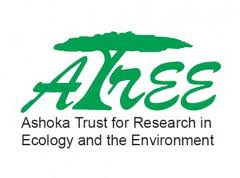Climate Change
Background information for the Twelfth Year Plan: Reports of the Planning Commission working groups
Posted on 16 Jun, 2012 04:53 PMThe Twelfth Five Year Plan of the Government of India commences during the year 2012-13. This plan has been developed following the recommendations of a number of Working Groups covering 26 different areas.
ATREE invites application for Research positions on Climate change and water in urbanising watersheds, India - Apply by June 15, 2012
Posted on 11 Jun, 2012 01:24 PM
Ashoka Trust for Research in Ecology and the Environment (ATREE) is a research institution in the areas of biodiversity conservation and sustainable development. We focus on applied science through research, education and action that influence policy and practice on conservation of nature, management of natural resources, and sustainable development.
Description:
We are beginning a 3-year research project on climate vulnerability and adaptation in urbanizing watersheds. This is an interdisciplinary research project involving natural and social scientists from ATREE and The Pacific Institute, USA, focusing on two watersheds: the Arkavathy sub-basin near Bangalore, and the Rangit sub-basin near Darjeeling. The objective is to understand the impact of climate change on the quality and quantity of water accessible to different sections of the society, particularly weaker sections, and the household and wider institutional/governance factors that shape vulnerability, short-term coping mechanisms and possible adaptation strategies.
Focus on the Global South invites application for Research Associate-Climate change, Delhi, Apply by June 20, 2012
Posted on 08 Jun, 2012 12:09 PMContent courtesy: Devnetjobs
![]()
A research study is being conducted under the aegis of Focus on the Global South - India on Non-CO2 Greenhouse Gases in India. The study aims to better understand their place in India’s GHG emissions profile and to look at different mitigation options available with respect to Non-CO2 GHGs, develop a framework within which to examine the feasibility or otherwise of these options, and examine possible policy initiatives for their abatement in the context of India’s overall mitigation strategy.
5th Climate Change International Conference 2012, Climate Change Network, June 8-12, London
Posted on 04 Jun, 2012 01:13 PMOrganiser: Climate Change Network
Venue: London Eco Hotel,
26 Brook St,
London,
W1K 5DQ,
![]()
Traditional water management systems - An overview of the Ahar-Pyne system in the South Bihar plains in India and the need for its revival - A paper from the Indian Journal of Traditional Knowledge
Posted on 23 May, 2012 04:45 PMThis paper published in the Indian Journal of Traditional Knowledge provides a brief overview of the the Ahar-Pyne system, a traditional water harvesting system still practised in the sout
Amateur weather monitoring in Kausani, Almora, Uttarakhand: A summary of David Hopkins' observations over the last two decades
Posted on 23 May, 2012 12:05 AMToday, this amateur weather station has an unbroken and reliable record of temperature and rainfall data for the area. Considering the difficulties involved in a sustained effort of this nature, this is a remarkable achievement.
Integrated hydrological data book (non-classified river basins) by Central Water Commission, Ministry of Water Resources
Posted on 15 May, 2012 08:37 AMThis data book published by Central Water Commission (CWC) is a compendium of impor
Water resources of Andhra Pradesh - An atlas by VIStA, IWMI and GoAP
Posted on 14 May, 2012 06:25 PMThis atlas on water resources in Andhra Pradesh by International Water Management Institute (IWMI), IWMI-Tata Water Policy Program (ITP), Visual Information Systems for Action (VIStA) and
The state and fate of Himalayan glaciers - A paper published in the magazine Science
Posted on 05 May, 2012 06:21 PMThe paper argues that there is a poor understanding of the processes affecting the Himalayan glaciers in the context of the diversity of climatic conditions and the extremes of topographical relief within the region, making projections speculative, which can have a significant impact on the future of water resources in the area. It is thus important to have more information on the status of the glaciers in the Himalayan region.
International meet on "Impact of Climate change on Water Resources Development and Management", Karunya University, Coimbatore, August 17-18, 2012
Posted on 03 May, 2012 11:59 PMOrganiser: Karunya University
Venue: Karunya University






